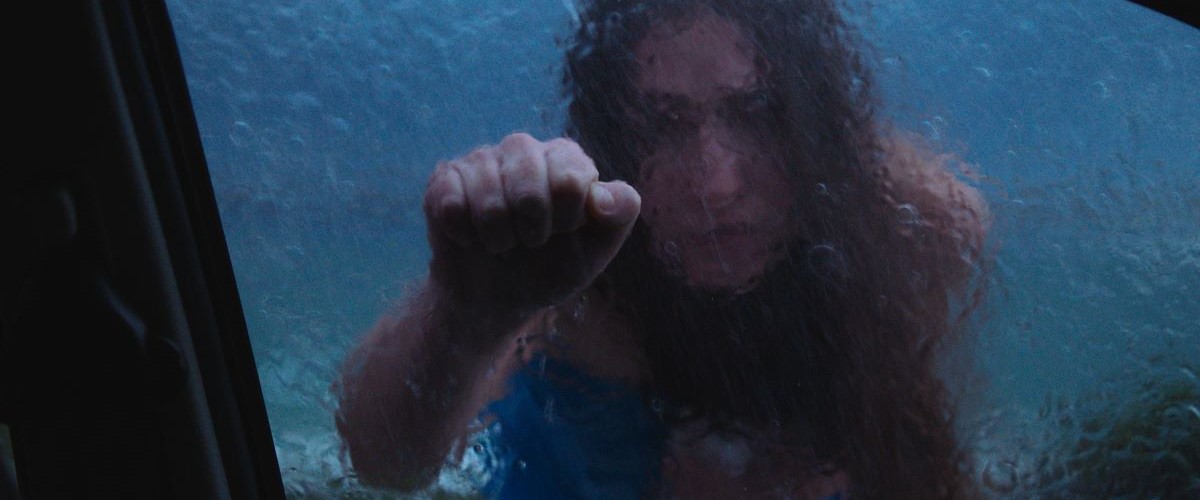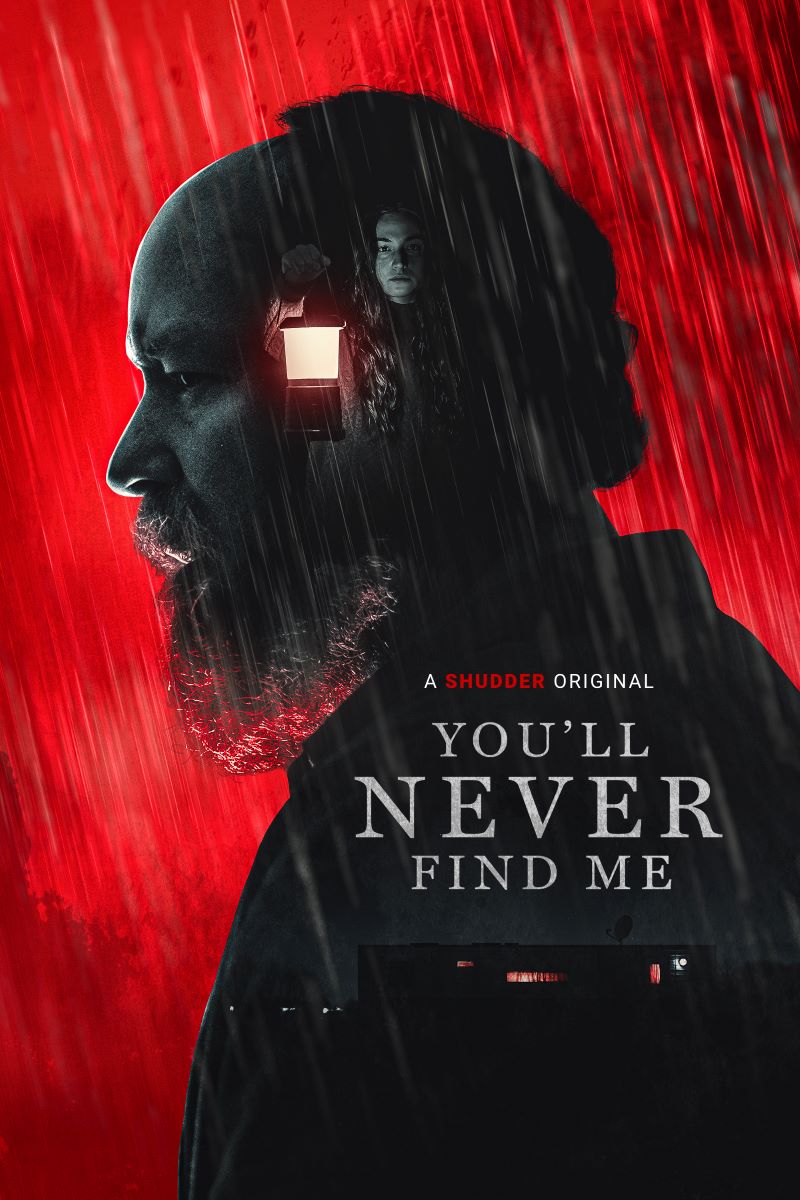"I'm afraid you knocked on the wrong door."
When Paul (Brendan Rock) says those words to the nameless woman who shows up at the door of his isolated trailer in the middle of a stormy night, the wordless uneasiness, already present in "You'll Never Find Me," shivers into anticipatory dread. We know what's coming. We've seen it before.
Only, we haven't. "You'll Never Find Me," the debut feature from Australian film-makers Indianna Bell and Josiah Allen, is a unique and startling film, decidedly its own "thing," albeit steeped in the horror tradition. The sense of ambiguity, of not being sure what to think, of who to root for, is so thick it's almost a solid substance. The two characters trudge through a sludge of suspicion and paranoia. The texture of "You'll Never Find Me" is masterfully sustained, so that the atmosphere's mix of pure fear and murky confusion is a waking nightmare, or one of those dreams where you know something terrifying is chasing you, and you are frozen in place.
The woman who shows up at Paul's door is labeled "The Visitor" in the credits, giving her a semi-supernatural connotation, although she is clearly flesh and blood, shivering and dripping wet. Jordan Cowan's Visitor is mercurial, confusing, flickering with impulses and responses, some recognizable, others not so much. Paul lives in a dingy trailer in what appears to be the middle of nowhere. How this barefoot woman even got to him at such a late hour is not explained. Her story—she fell asleep on the beach and was walking "home"—doesn't make sense. When she tells the story again, details change. She is clearly lying. Paul is first seen alone, a stolid mass of a man, soggy with feeling (although what he's feeling is harder to name), sitting at his tiny table, listening to the storm scream against the thin walls. Something is very very wrong even before the Visitor shows up.
The woman's overall demeanor is inconsistent with her circumstances. She tries to put a brave face on things. She asks if he can give her a lift into town. He keeps telling her they'll have to wait until the storm passes. He suggests she allows her clothes to dry, he makes some tea, he suggests a hot shower, he makes her some soup. The shadows are so dark, the storm is so loud, the creaks and drips and howls in the air make ordinary kindness seem sinister. What's he up to? But everything is so unstable you wonder what she is up to as well. He talks a lot, but it's not small-talk. He moves like he's underwater, and his thoughts are equally slow and deliberate. He drones on about fear and paranoia, sleep vs. no sleep, and she listens, sometimes alert to red flags of potential danger, but sometimes getting sucked into his rhythms. The Visitor is strangely comfortable in this eerie environment, peering at the objects and trinkets he has lying around, openly snooping. The shadows are thick and impenetrable, even more so when the power goes out.
Bell wrote the extraordinary screenplay. There are only two characters in the film, and there's a lot of dialogue. Paul is caught up in his own dark insomniac imaginings, terror at what might be outside trying to get in. There's something hypnotic about his voice. The Visitor listens with her nerve endings. She wants to leave. But she stays.
The pace is slow, and the sound design is oppressive: the howls of wind, the dripping, groaning pipes, floors and chairs creaking, all of which sometimes sound like human voices in agony. Maxx Corkindale's cinematography, combined with the set design, is a moody gloomy masterpiece. The color scheme is so controlled—rusts and dingy golds interrupted by patches of pitch blackness—that when other colors arrive—fluorescent blues, silvers, greys—it's as alarming as a gun shot. There are times when the storm is so intense it pounds against the ceiling and walls like a wild animal. Paul and the Visitor glance up at the ceiling, alarmed. They both seem to be in danger. In the world of "You'll Never Find Me," this may very well be true.
Maybe everything is what it seems: Paul is a lonely man retreated from society, undone by some tragedy, and the Visitor is a free-spirited girl who gets herself into "dumb situations," as she says. But there are clues. The power dynamic is like a river, crashing back and forth between Paul and the Visitor. At different points, it's perfectly believable that the Visitor is the one who poses a threat to Paul. At other times, the opposite is true. The film is so top-heavy with dread and doom that feeling unsure about the Visitor's motives is a wild accomplishment. Both actors give incredible performances, playing characters stopped up with feelings and secrets. "You'll Never Find Me" is intensely alive.
There is a "twist," which might or might not come as a surprise. The hints are there, but the overall mood is so destabilized the film itself is on edge. Endings are sometimes a deflation in suspenseful movies like this. Putting the pieces together makes the whole seem less than its parts. "You'll Never Find Me" doesn't suffer as much as other films do in this regard, mainly because the sodden yet charged atmosphere is so masterfully sustained for such a long time. The journey is so terrifying that the destination barely matters. Until it does.
On Shudder tomorrow, March 22.




















